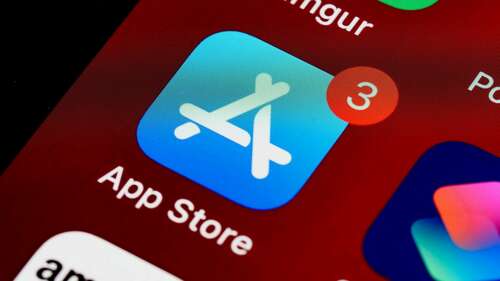Apple has announced iOS 17.4 that includes new options for an alternative App Store in the European Union, plus browsers will no longer have to use Apple’s WebKit.
It was known that Apple would be working to comply with the EU’s requirement that it add sideloading, or third-party app stores. Now Apple has revealed that from March 2024, and the release of iOS 17, it will be adding new fees, new options for developers, and is working to maintain privacy safeguards for users.
“The changes we’re announcing today comply with the Digital Markets Act’s requirements in the European Union,” said Phil Schiller, Apple Fellow, “while helping to protect EU users from the unavoidable increased privacy and security threats this regulation brings.”
“Our priority remains creating the best, most secure possible experience for our users in the EU and around the world,” he continued. “Developers can now learn about the new tools and terms available for alternative app distribution and alternative payment processing, new capabilities for alternative browser engines and contactless payments, and more.”
“Importantly,” he said, “developers can choose to remain on the same business terms in place today if they prefer.”
Apple is now going to notarize all iOS apps, regardless of where they are sold. It says this will mean protecting users from security issues, but will not also include the same App Store Review that Apple now provides.
Developers who want to offer their own marketplace will have to be approved by Apple. Approval requires that developers demonstrate human review of apps before distribution.
What EU users will see
From the user’s perspective, they will be asked for permission when a developer wants to add a marketplace. Users can also later revoke that permission.
Before a user installed an app from an alternative store, they will have to be shown an App Installation Sheet. This will display information from Apple’s notarization system, such as the developer name, and screenshots.
Users will also get three payment options, depending on how developers choose to distribute their apps. They can buy apps via the App Store as now, they can buy via an alternative payment service, or they can click a link to go out to purchase on the developer’s website.
Apple is also expanding user choice regarding browsers. At present, Safari can be swapped for an alternative via System Settings, but all iOS browsers have had to use Apple’s WebKit engine.
Now developers can use alternatives. And the first time a user opens Safari after installing iOS 17.4, they will be prompted to select a default from a list of popular browsers.
New fees for EU developers that choose sideloading
For apps that are sold via alternative third-party app marketplaces, Apple will reduce its standard commission from 30% to 17%. Apps that now get charged the reduced 15%, will instead be charged 10%.
There are, however, further charges including a Core Technology Fee, which is 0.5 Euro per first install of an app annually. Except Apple will waive that fee for the first one million installs.
Developers can also opt to pay Apple 3% as a payment processing fee.
Developers in the App Store will get over 50 new reports regarding engagement, commerce and so on. The data will be provided via a new analytics API.
Apple says that at present, 88% of active developers in the EU pay no fee. The some 9% pay the current 15% rate, and the rest are on the standard 30%.
Following the changes, Apple claims that 99% of all developers in the EU will pay the same or less in fees.


